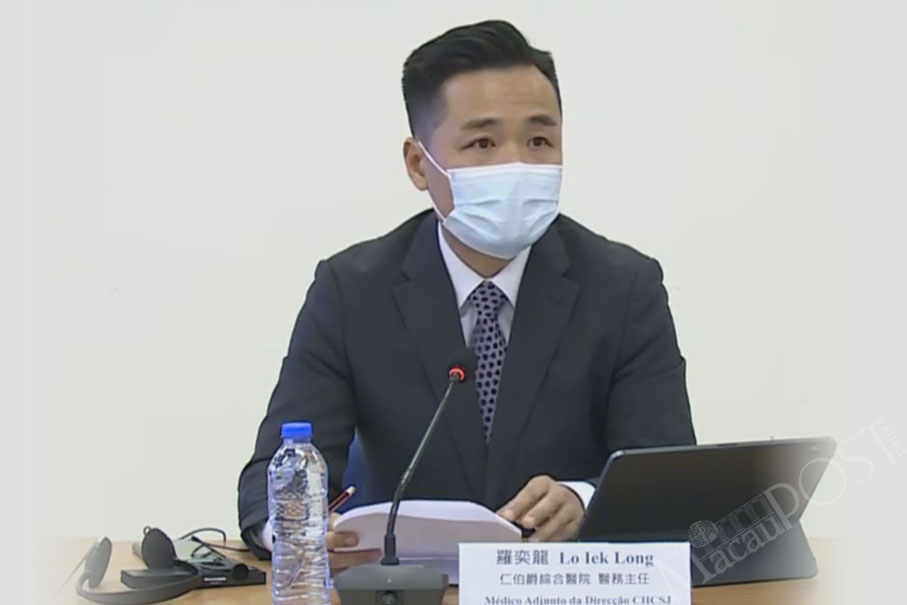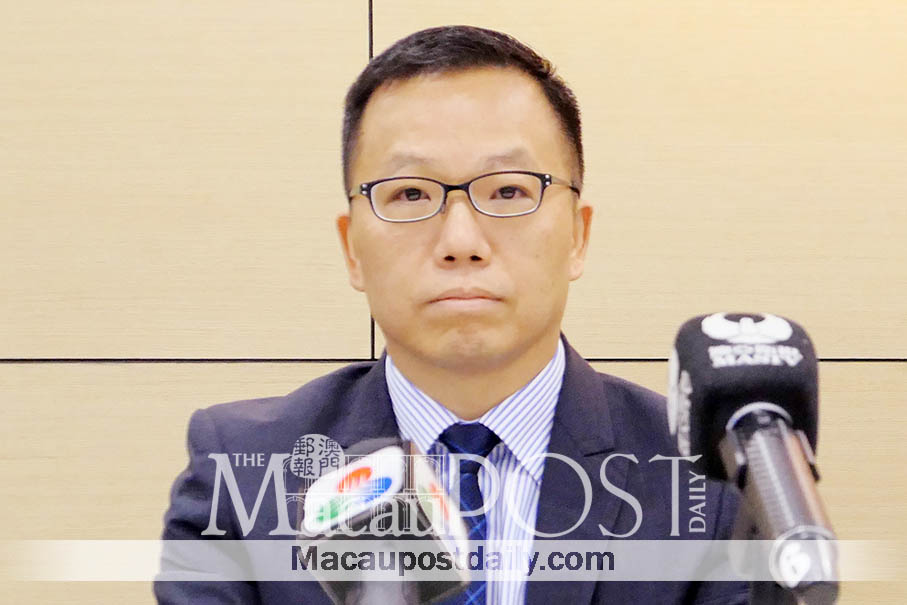Addressing yesterday’s daily press conference about Macau’s novel coronavirus (COVID-19) situation, Alvis Lo Iek Long, a clinical director of the public Conde de São Januário Hospital Centre, said that the COVID-19 pandemic will surely not be over in the near future, adding that the epidemic across the world will only come to an end after a specific medicine to treat the disease or a COVID-19 vaccine has been successfully developed.
“For the time being it is still difficult to precisely predict when the epidemic [in Macau] will be over as the epidemic in various places in the world is constantly escalating,” Lo said.
“The epidemic will possibly even get more serious if the novel coronavirus mutates to become more transmissible while it may subside and eventually disappear if the virus mutates to become less transmissible,” Lo said, adding that the epidemic which is easing will possibly become serious again if people let their guard down.
Macau has so far confirmed 45 COVID-19 cases. Macau’s 10 “first wave” patients – comprising seven tourists from Wuhan and three locals – have been discharged, while three of the 35 patients in the “second wave” – which began on March 15 – were discharged on Easter Sunday. All the 35 cases in the current “second wave” have been classified as imported, most of them local students returning from overseas. The 45th case was confirmed last Wednesday, meaning that the city has not confirmed a new COVID-19 case for five consecutive days in the “second wave”.
Macau’s “first wave” of the COVID-19 infection lasted from January 22 to February 4.
Lo Iek Long, one of the three clinical directors of the public Conde de São Januário Hospital Centre, addresses yesterday’s press conference at the Health Bureau (SSM) about the city’s novel coronavirus (COVID-19) situation. Photo: GCS
Only 4 ‘quarantine hotels’ still operating
Meanwhile, Inês Chan Lou, who heads the Licensing and Inspection Department of the Macau Government Tourism Office (MGTO), confirmed during yesterday’s daily press conference that as of yesterday afternoon only four “quarantine hotels” were still operating.
At the peak, there were 12 “quarantine hotels” with about 3,000 guestrooms. Early last week, Metropole Hotel became the first of the government’s “quarantine hotels” to return to its normal hospitality role, and since then more and more “quarantine hotels” have returned to their previous roles after all those who completed their 14-day quarantine and medical observation in them had checked out.
The four remaining “quarantine hotels” are Pousada Marina Infante in Cotai, Golden Crown China Hotel opposite the local airport in Taipa, Jai Alai in Zape, and a section of the Sheraton Grand hotel in Cotai.
Chan said that as of yesterday afternoon 753 people were still undergoing their 14 days of quarantine and medical observation in the government’s now four “quarantine hotels” – comprising 513 Macau residents, 180 non-resident workers and 60 visitors.2 non-local patients’ bill still unpaid
Meanwhile, Lo also said during yesterday’s press conference that the two non-local patients who were discharged on Easter Sunday still have to pay their medical bill for their COVID-19 treatment at the public hospital.
The public hospital announced on Sunday that the bill for the 31-year-old non-resident worker from the Philippines (Macau’s 15th COVID-19 case) is 18,000 patacas while the bill for the 47-year-old Spanish tourist (the 12th case) is 44,000 patacas.
Local residents do not need to pay for treatment of infectious diseases. Non-local patients that had infectious diseases can apply for exemption of payment of the bill due to financial difficulties.
Lo said that the two non-local patients had told the hospital that they were willing to pay their bills but would need several days to collect the money. Lo said that as the two patients have been transferred to the Health Bureau’s quarantine facility in Coloane – Public Health Clinical Centre – for 14 days of recovery period isolation, the public hospital had allowed them to pay their bills after they complete the 14-day isolation.
Lo noted that patients who are non-resident workers have to pay the original amount of their public hospital bills, while patients who are tourists have to pay double the original amount. Local residents enjoy a 30 percent discount on their bills from the public hospital. However, local residents’ treatment of infectious and certain diseases is free of charge at the public hospital.







